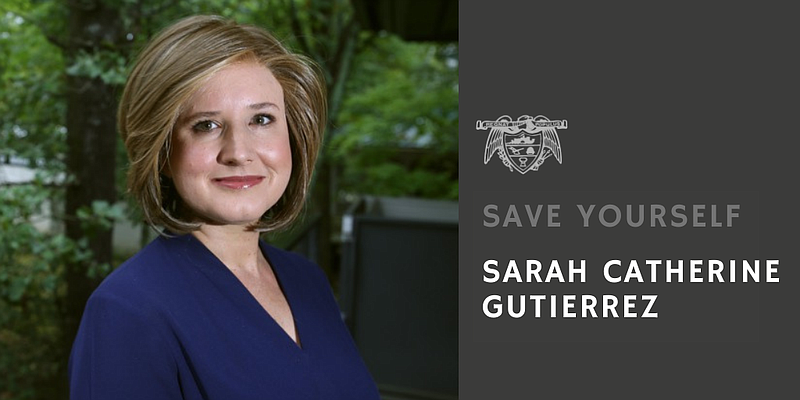Let me tell you about two money guys. They will openly self-describe their jobs as putting people to sleep and getting you in the end. Surprisingly, these are not financial advisers. They are an anesthesiologist and a colorectal surgeon.
If you are thoroughly confused, you ought to be. These are doctors who have self-studied personal finance to be on a par with the most credentialed financial planners, applied the principles to their own lives and are on a dogged mission to teach fourth-year medical students everything they need to know about personal finance and the business side of medicine.
Most importantly, I think they offer both inspiration and a road map to a financial education that we must not delay in replicating in every single profession. Imagine if we armed new engineers, electricians, plumbers, teachers and nurses with such a comprehensive financial education.
The best part? One of them is right here in our backyard. Dr. Jason Mizell, a colorectal surgeon at the University of Arkansas for Medical Sciences, during his 10 years of training saw so many surgeons stuck in lives they never intended, living beyond their means, getting sold subpar insurance and annuity products, and suffering under the weight of years of student loan and practice debt. What concerned him was that it affected their passion for what made them want to be a doctor in the first place.
Nine years ago, working with the dean of the College of Medicine and curriculum developers, Dr. Mizell created a semester-long course called the Business of Medicine, bringing in expert presenters in two-hour time slots to host lectures and activities covering budgeting, saving, student loan debt, investing, estate planning, medical coding (ahem -- how doctors actually get paid), contracts and negotiation, and so much more.
I handle the budgeting and student loan session. Before I launch into my talk I start with a simple exercise with no explanation or warning. The goal of the exercise: make spending decisions for a hypothetical doctor who is just coming out of residency making $300,000 a year but who also has $300,000 in debt (which is quite common among today's graduates). The students break into groups and each group is responsible for a different spending decision, from which car to buy, which house to buy, private or public education for the kids, private or public college to save for, etc.
It always starts out with much laughter and considerable "cutting up" as group after group reports back, each inevitably proving how little they would spend. But by the sixth and then the final seventh group, the auditorium is silent. Despite these modest budgets, our simulated doc runs out of money. The exercise is designed to walk through just how any well-meaning, smart physician can go from making $60,000 in residency to living from paycheck to paycheck on a $300,000 salary within a couple of years. As Paula Pant so famously says, "You can afford anything but not everything." That exercise, alone, is enough to bring many soon-to-be-doctors to the conclusion that budgeting and financial planning really is for everyone, even those who make a lot of money.
[Video not showing up above? Click here to watch » https://www.youtube.com/watch?v=KX5ArfBHngU]
The Business of Medicine course isn't something these students have to fit into their spare time. No, it's an elective actual course for credit. And each year approximately two-thirds of the medical school class sign up for it.
Going into his eighth year of the course with surveys continually proving the value to graduating medical students, Dr. Mizell is seeing the fruits of his innovation and insight starting to spread. Remember the anesthesiologist? He is Dr. Jimmy Turner who started Wake Forest School of Medicine's 10-week course last year, adapted from Dr. Mizell's Business of Medicine course, called FLARE (Financial Literacy and Resilience Education). This week I will do my sober budget simulation with the fourth-year medical students at their medical school campus in Winston-Salem via videoconferencing.
Dr. Mizell has had calls from medical colleges around the country eager to provide this same training to physicians. See, many of these graduates attend other residency programs, and they share with their colleagues the personal finance training UAMS has offered. It doesn't take long for medical colleges to perk up and start asking why they don't offer this course.
All this has been against a backdrop of a large movement of physician-led education starting with the White Coat Investor blogger, Dr. James Dahle, in Salt Lake City, and dozens more physicians learning and teaching other physicians to do the same. Dr. Turner has his own following of physicians around the country consuming his blog, book and podcast under the pen name The Physician Philosopher.
Recently, this mostly online network of physicians started gathering annually in the hundreds to share information and, let's be honest, nerd-out on personal finance, saving and investing, avoiding burnout, etc., at a White Coat Investor event. In 2020, that event celebrated our own Dr. Mizell when he was chosen for the Financial Educator of the Year award.
So, I ask you, what do you think financial education should look like? A lone one-hour financial talk in college or grad school? Or should we "scope" out Dr. Mizell here locally and replicate his passion and dedication to holistic, dogged financial education that will have a lifetime impact?
Sarah Catherine Gutierrez is founder, partner and CEO of Aptus Financial in Little Rock. She is also author of the book "But First, Save 10: The One Simple Money Move That Will Change Your Life," published by Et Alia Press. Contact her at sc@aptusfinancial.com.
